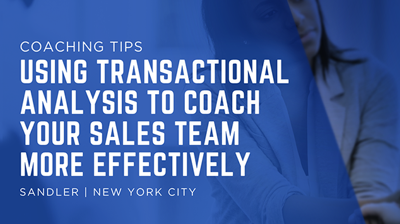Everyone in the successful business world agrees that continuous training, mentoring and/or coaching is key for continued growth. This is especially important for sales/business development people.
Product or Sales Skill Training?
Now when the product-marketing guru's think of training they typically think of product training and this is what most companies think about first and foremost. Product knowledge is very important to long term success. Sales skills are imperative. I don't care how much product knowledge you have, if you have no sales skills nothing gets sold. We all know people who have a vast, unquestionable knowledge of their product line and maybe the whole company, but because of their lack of people skills (read "sales skills") they couldn't give the stuff away.
On the other hand, every sales person starts with minimum product knowledge in the beginning. As long as they know where to go for the answers, the majority of the time they can get the sale. In fact as a result of their product knowledge something wonderful happens. Since they can't do much of a presentation they have nothing left to do but actually listen to the customers concerns and needs. What a concept! Actually being concerned about and listening to the customer. For most sales people, the more product knowledge they have, the more talking and the less listening they want to do. For that reason I will always prefer the person to be well-trained in sales skills. They will get the product knowledge eventually, while their getting sales.
Frequently the reason you want to hire sales people with experience is because you need to fill a vacancy immediately. The better answer is to have someone in the wings that can be serving in a different capacity, but being groomed to move into a sales position eventually. Depending on the position that you "bank" these people in, it may make sense to begin basic sales training with them. For example a future sales person may start out as a receptionist or customer service person or other sales support positions. When a sales vacancy occurs those people will already know the culture of the company, have some product knowledge and hopefully have some basic sales skills, so they can more easily move into the open position.
A secondary effect of this practice is that your existing sales people will have less of a tendency to get too comfortable knowing there are young studs and studesses waiting to move into their territory at first opportunity.
Format Rules
You can't teach sales skills by sending someone to a seminar. Continuous reinforcement training is required to make any significant changes in your sales skills. Successful sales training depends on the success of the skills transfer mechanism. Acquiring selling skills requires a lot of practice. As in any sport, practice requires feedback from a good coach. It's the same in sales. Practice and coaching are key elements in learning skills. The first time a sales person practices his/her new skills it is difficult and uncomfortable. Training practices are best accomplished in a "safe environment". In a classroom full of peers with a skilled coach, the sales person learns new behaviors and gains the confidence necessary to transfer this behavior to the sales job. They can then try the new behavior or skill in front of a prospect the next day. When they return to class they share their experience with their peers and they all gain from the experience.
While "live" training is expensive, the payback and R.O.I. is cumulative year after year after year. Ongoing reinforcement of skills and behaviors is the only effective way to keep your sales team at the top.

Dave Fischer, President, Chartwell Seventeen Advisory Group
Sandler Training NYC






